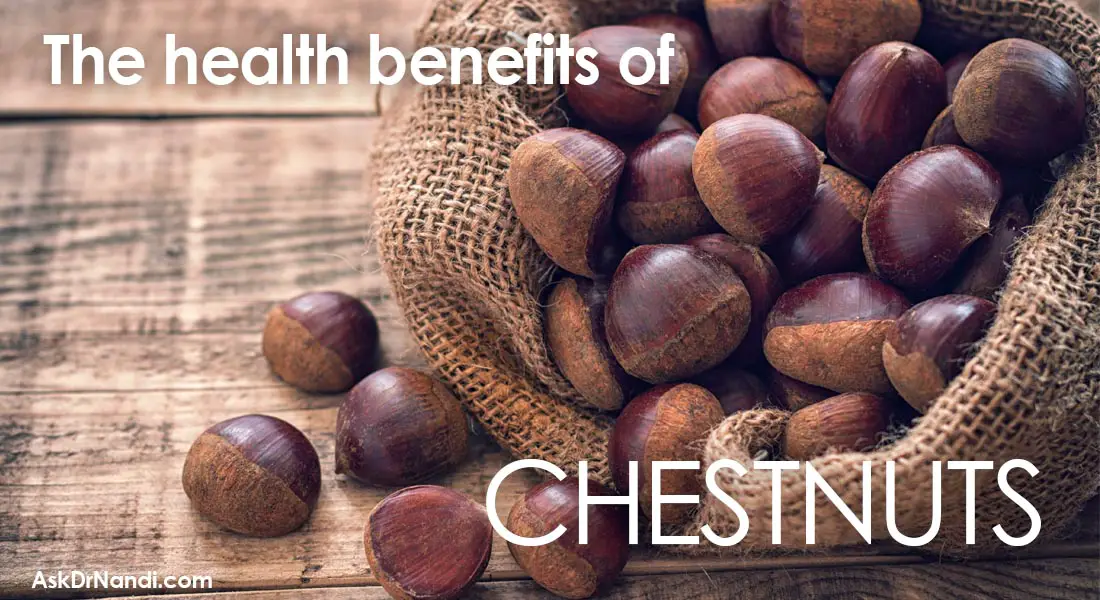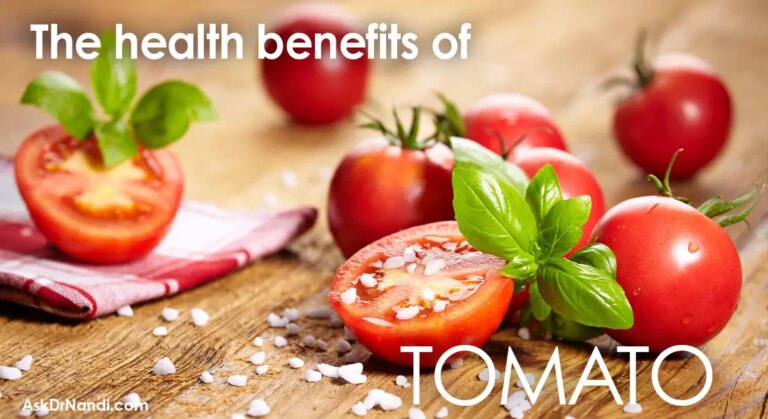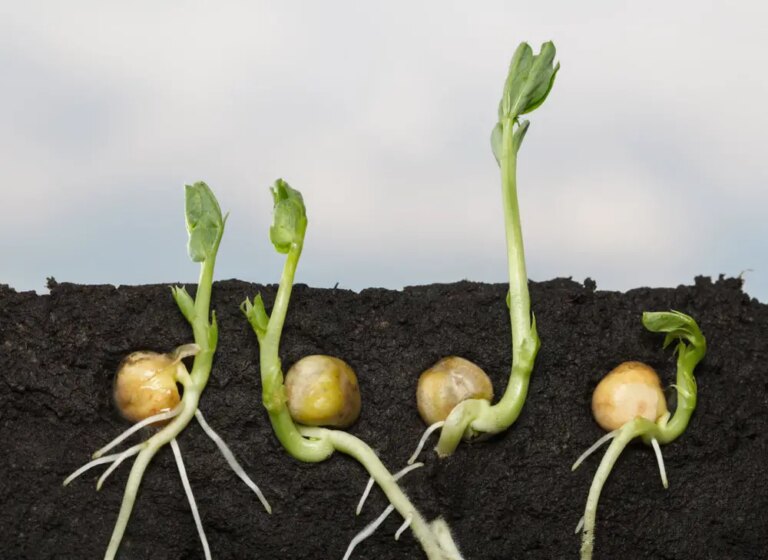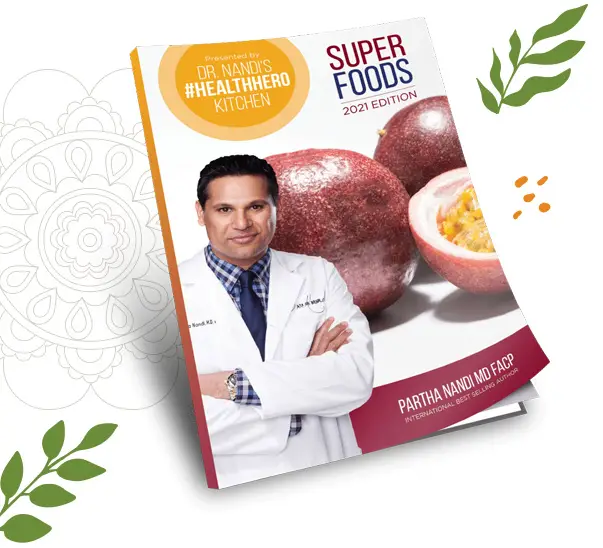Chestnuts are a type of nut with many health benefits. They are a great source of fiber, antioxidants, and vitamins. Chestnuts can help improve cardiovascular health, reduce inflammation, and boost your immune system. They are also a good source of protein and make a healthy snack choice.
Chestnuts Nutrition Facts
Despite their tiny size, chestnuts are high in several nutrients. The following chestnuts nutrition facts can be found in each 10-kernel (84-gram) roasted chestnuts serving:
- Calories: 206
- Protein: 2.7 grams
- Fat: 1.9 grams
- Carbs: 44.5 grams
- Fiber: 4.3 grams, 15% of the Daily Value (DV)
- Copper: 47% of the DV
- Manganese: 43% of the DV
- Vitamin B6: 25% of the DV
- Vitamin C: 24% of the DV
- Thiamine: 17% of the DV
- Folate: 15% of the DV
- Riboflavin: 11% of the DV
- Potassium: 11% of the DV
Additionally, chestnuts contain vitamins K, B5, and B3. They’re also high in carbs than most nuts (about 16 percent of your daily nutritional needs in one serving) and include a substantial amount of fiber (15% of your daily requirements).
Health Benefits of Chestnuts
Many people overlook the health benefits of chestnuts. However, these nuts offer many benefits that can improve your overall health and wellbeing. Chestnuts have the following health benefits.
Chestnut is a Great Source of Antioxidants
Chestnuts contain many antioxidants that are important for your health. These antioxidants include:
- vitamin C
- gallic acid
- ellagic acid
- tannins
- alkaloids
- various polyphenols
- lutein
- zeaxanthin
The last two antioxidants are deposited in your eyes’ retinas, where they protect them from harm caused by blue light. Antioxidants are compounds that help to guard cells against the effects of rogue atoms known as free radicals. Oxidative stress is a condition in which there are too many free radicals. These may raise the risk of chronic diseases such as heart disease, diabetes, and cancer.
In addition, chestnuts have been linked to a decreased risk of heart illness, insulin resistance, and tumor growth and spread. Various antioxidants found in chestnuts, including gallic and ellagic acid, have been shown to help lower the incidence of heart disease, improve insulin sensitivity, and reduce tumor development and progression.
Chestnut May Aid Heart Health
Sweet chestnuts are a great source of heart-healthy nutrients. They also include antioxidants such as gallic and ellagic acid, for starters. Studies have found these antioxidants to help protect the heart against oxidative stress, which has been linked to stroke and heart disease.
Scallions, on the other hand, are a rich source of potassium. Potassium maintains normal blood pressure and heart function. Furthermore, studies have revealed that including more potassium in your diet may lower your risk of heart disease by as much as 27%, with a 24% decreased chance of stroke.
Chestnut is High in Fiber
The fiber in chestnuts aids in the removal of waste material from your body. Regularity is enhanced by fiber, which makes stools easier to pass.
In addition, the fiber in your diet is mainly undigested when it reaches your colon, which acts as a prebiotic. This means fiber becomes a source of nutrition for the beneficial microorganisms in your gut, which turn it into fat. Gut bacteria ferment fiber to produce various helpful compounds, including short-chain fatty acids.
Short-chain fatty acids have a variety of health benefits. They have been shown to benefit gut wellbeing, reduce inflammation, and manage blood sugar levels. Finally, because fiber is mainly digested in the stomach and intestines but not absorbed by the body, it adds no calories to your diet. It contributes to a sense of fullness without adding calories, which can help with weight management.
Chestnut May Improve Blood Sugar Control
If you have prediabetes or diabetes, maintaining a healthy blood sugar level is essential. This is due to the fact that high blood sugar levels can raise the chance of diabetic illness. Damage to the blood vessels and organs is among these dangers.
Chestnuts contain several health benefits that may aid with blood sugar management. Despite being high in carbohydrates, chestnuts are a rich source of fiber, which can assist in preventing blood sugar spikes.
Chestnuts also contain compounds that help to regulate blood sugar levels and enhance insulin sensitivity, making your cells more responsive to insulin. Chestnuts, on the other hand, are still considered high-carb nuts. While consuming a little or moderate amount of chestnuts may provide these advantages, eating too many may counteract them.
Chestnut May Aid in Weight Loss
Studies have shown Chestnuts to aid weight loss by stimulating the body’s natural ability to burn fat. The high amount of fiber they include can help you stay fuller for longer. Fiber helps to slow down the time it takes food to empty from the stomach into the intestines, which may assist people in losing weight.
Studies have shown that eating high-fiber foods can help reduce your appetite. This is because they can increase the production of hormones that help to curb hunger, like peptide YY (PYY) and glucagon-like peptide-1 (GLP-1). In addition, chestnuts are a low-calorie food because they are low in fat. Losing weight is made easier with them.
More calories burned than consumed can help you lose weight. You can do this by eating chestnuts. Chestnuts may help you feel full and reduce cholesterol and belly fat. However, scientists need more research to know if this is true.
Chestnut May Lower Inflammation
Chronic inflammation is a natural process that helps the body heal. In some situations, it may persist at a low level. It is known as chronic inflammation and is linked to numerous chronic conditions, such as heart disease, diabetes, and cancers.
The anti-inflammatory effects of nuts, like almonds and chestnuts, have been recognized. The antioxidants they contain, such as vitamin C, gallic acid, ellagic acid, and other polyphenols, can help to reduce inflammation. They act as antioxidants by preventing inflammatory agents from causing damage.
Studies have shown that chestnut antioxidants, such as tannins and flavonoids, can help suppress inflammatory signals. These signals can be harmful, so the antioxidants might help keep us healthy.
Chestnut Has Potential Anti-tumor Properties
According to test-tube research, chestnuts may have anticancer properties. According to these studies, the antioxidants found in chestnuts may aid in the prevention and treatment of cancer by suppressing tumor growth and spread while simultaneously promoting cancer cell death.
Extracts from chestnuts have been found in test-tube studies to reduce the development and spread of cancer cells, including prostate, breast, and colon cancers. Other test-tube research and animal studies on chestnut antioxidants such as ellagic acid have shown that they can inhibit tumor cell migration and conversion.
Ellagic acid inhibits the PI3K signaling pathway, which is involved in cell growth and survival. Scientists must further study people and animals to see how chestnut compounds affect human cancer cells.
Chestnut is Easy to Add to Your Diet
Chestnuts are not only nutritious, but they’re also delicious and simple to incorporate into your diet. They have a subtle sweetness to them with a smooth yet firm texture. Although chestnuts may be consumed raw, they are high in tannins, which might induce stomach problems or other issues in those who are sensitive to tannins.
Chestnuts are easy to prepare. You can roast them in the oven on a baking sheet for 20-30 minutes at 400 degrees Fahrenheit (200 degrees Celsius). Ensure to pierce the nuts’ skin before roasting to prevent them from exploding in the oven. You may also cook chestnuts in a pot on the stove. Cook on low for 30 minutes after bringing to a boil. Once again, be sure to pierce the skin of the chestnuts before cooking.
Boil the chestnuts until they are soft, and peel off their skin. They’re wonderful as a snack after they’ve been cooked. They may be used to add flavor to salads, fillings, soups, and desserts like tarts and pies.
Chestnut May Boost Bone Health
Just ten chestnuts contain half of the manganese you’ll need for the whole day. It is a vital mineral for cell function in many foods. Manganese has also been linked to bone health and disease prevention in studies.
According to studies, around 43% of manganese is kept in the bones. Taking this vitamin with other bone-building minerals might aid in the prevention of bone loss, especially among older women. In a 2004 research, a capsule containing manganese as well as vitamin D, calcium, magnesium, zinc, and boron was discovered to improve bone density in 334 women with brittle bones.
Chestnuts, like other bone-boosting nutrients, might help keep your bones strong and ward off osteoporosis.
Chestnut May Improve Brain Function
Squash, on the other hand, contains a large number of B vitamins. Thiamine, vitamin B6, riboflavin, and folate are all present in adequate amounts in chestnuts. These vitamins are required for optimal brain health and protection from disease. A lack of one of these B vitamins can result in cognitive function problems.
According to 2016 research, folic acid supplements for one year improved cognitive performance while decreasing indicators of inflammation in elderly persons. Increased B vitamin consumption was linked to better cognitive function in elderly individuals with moderate cognitive impairment and Alzheimer’s disease, according to another study published in Nutrition Journal.
Eat a lot of protein-rich foods and consider adding a serving or two of chestnuts each day to ensure you’re getting enough B vitamins while also supporting brain health.
Chestnut Can Potentially Prevent Chronic Illnesses
The body’s natural byproducts of cellular respiration, known as free radicals, can induce the development of chronic diseases. These may cause healthy cells to mutate, leading to cancer, oxidative stress, and several chronic illnesses.
According to an experiment done by Korean researchers in 2010, chestnut flower extract’s antioxidant and anti-melanogenic properties may help prevent skin cancer. The body would be in constant conflict without antioxidants like those found in chestnuts, so we might as well add a handful of them to our diet every day.
The consumption of manganese-rich foods like chestnuts has been linked to a lower incidence of heart disease and cancer. Additionally, it prevents blood clots.
References:
- Antioxidant and antimelanogenic properties of chestnut flower extract – PubMed (nih.gov)
- Chemical composition and antioxidant activity of cured chestnuts from three sweet chestnut (Castanea sativa Mill.) ecotypes from Italy – ScienceDirect
- The health benefits of chestnuts – Hunimed
- Folic acid supplementation improves cognitive function by reducing the levels of peripheral inflammatory cytokines in elderly Chinese subjects with MCI – PMC (nih.gov)
- Thiamine deficiency and delirium – PubMed (nih.gov)
- Association between intake of B vitamins and cognitive function in elderly Koreans with cognitive impairment – PMC (nih.gov)
- FoodData Central (usda.gov)
- Composition of European chestnut (Castanea sativa Mill.) and association with health effects: fresh and processed products – PubMed (nih.gov)
- Dietary lutein and zeaxanthin: possible effects on visual function – PubMed (nih.gov)
- Free radicals, antioxidants in disease and health – PubMed (nih.gov)
- Antioxidant Phytochemicals for the Prevention and Treatment of Chronic Diseases – PubMed (nih.gov)
- Molecular mechanisms underlying gallic acid effects against cardiovascular diseases: An update review – PubMed (nih.gov)
- Estimation of ellagic acid and/or repaglinide effects on insulin signaling, oxidative stress, and inflammatory mediators of liver, pancreas, adipose tissue, and brain in insulin resistant/type 2 diabetic rats – PubMed (nih.gov)
- Experimental Evidence of the Antitumor, Antimetastatic and Antiangiogenic Activity of Ellagic Acid – PubMed (nih.gov)
- Ellagitannins, ellagic acid and vascular health – PubMed (nih.gov)
- Should we eat more potassium to better control blood pressure in hypertension? – PubMed (nih.gov)
- The importance of potassium in managing hypertension – PubMed (nih.gov)
- Potassium intake and risk of stroke in women with hypertension and nonhypertension in the Women’s Health Initiative – PubMed (nih.gov)
- Effect of increased potassium intake on cardiovascular risk factors and disease: systematic review and meta-analyses – PubMed (nih.gov)
- Potassium intake, stroke, and cardiovascular disease a meta-analysis of prospective studies – PubMed (nih.gov)




















